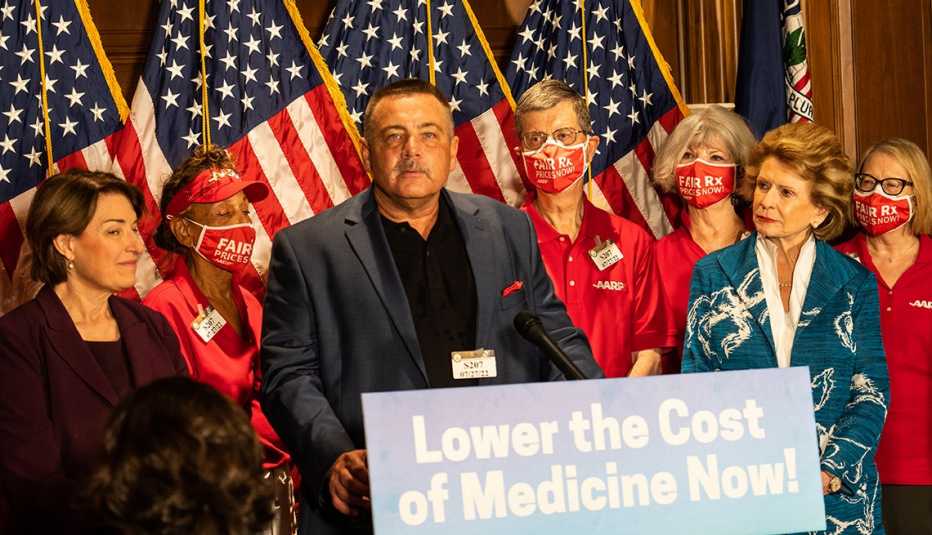Staying Fit
As the U.S. Senate approached its vote on legislation that could make Medicare more affordable for millions of Americans, AARP volunteers from near and far pushed hard to convince lawmakers to vote in favor of the bill.


AARP Membership— $12 for your first year when you sign up for Automatic Renewal
Get instant access to members-only products and hundreds of discounts, a free second membership, and a subscription to AARP the Magazine.
The Inflation Reduction Act of 2022 will allow Medicare to negotiate prices for some prescription drugs, cap annual out-of-pocket costs for Part D drug plans at $2,000 annually, and continue federal subsidies on premiums for some people who have Affordable Care Act health insurance. President Joe Biden signed the bill into law on Aug. 16. The budget package includes climate and energy provisions as well as corporate tax changes.
With every senator’s vote being vital to the bill’s prospects, AARP volunteers did their best to convince their legislators to say yes. For Len Kirschner, 86, that meant catching a last-minute flight from Arizona to Washington, D.C., to meet with lawmakers face-to-face just days ahead of the vote. During his time as state president of AARP Arizona, which is a volunteer position, Kirschner built valuable relationships with his state’s members of Congress. He thought those connections — plus his experience as a doctor and Medicaid administrator — might help the bill cross the finish line in the Senate.
“People I know do have difficulties with their Medicare and their prescription drugs, so we're working on this,” Kirschner says. “It's the right thing to do.”
Volunteers took action nationwide
While most of the AARP volunteers who pushed for a yes vote on the bill didn't have the personal relationships with lawmakers that Kirschner has, they were just as effective because of their collective numbers, and passionate and sustained commitment to the cause of lower drug prices. Since 2019, AARP volunteers nationwide have acted more than 8 million times — via email, social media, phone calls, in-person meetings, petitions — to persuade lawmakers to allow Medicare to negotiate lower prescription drug prices, along with other moves to make health care more affordable.
“Over the years, when we've had the opportunity to get in front of our legislators, we've been beating the drum that we need relief from [prescription drug prices],” says Lee Baker, a financial planner in suburban Atlanta who previously served as state president of AARP Georgia. Baker testified in July at a field hearing on the issue by the Senate Committee on Aging.
“This is nonpartisan," Baker says. "I don't care if you're Republican, Democrat or independent. People at home on Main Street have difficulty affording these prescriptions.”
Across the nation, AARP volunteers connected with their lawmakers to push for this issue in a variety of ways.



































































More From AARP
Prescription Drug Win Caps AARP’s Yearslong Fight for Lower Prices
The power of tens of millions of 50-plus adults led to a historic victoryWhat if Milk Prices Rose as Fast as Prescription Drugs?
Basic staples would be out of reach for many if prices went up at the same rate as popular prescription drugs
How Americans in Every State are Impacted by the Runaway Costs of Prescription Drugs
Americans pay more than three times what people in other countries for the same medicines